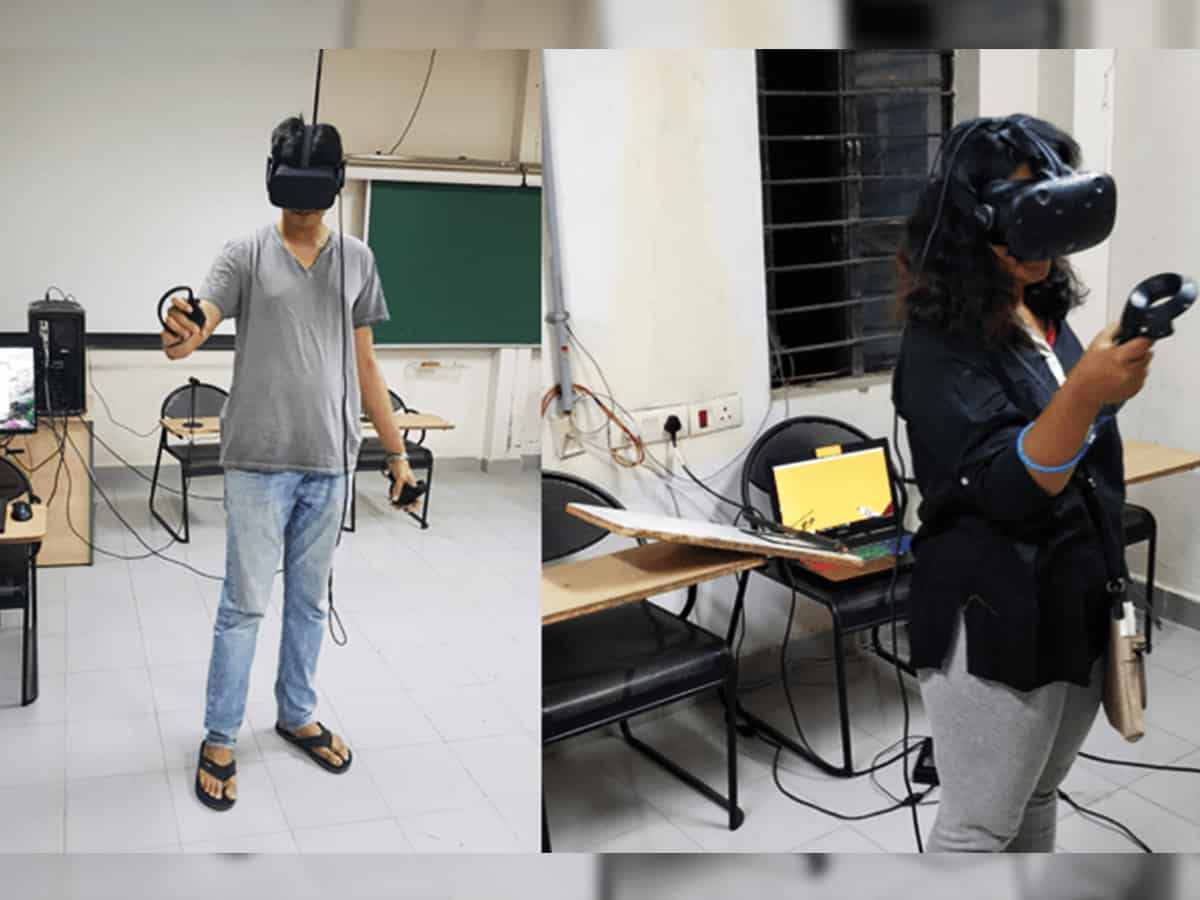
‘Marriages are made in heaven’, is an idiom that often crops up in discussions on love and matters of the heart.
While some swear by it, saying it’s ordained and marriages are just performed on Earth, many tend to veer around to the trend that it’s mostly an earthly matter that youngsters have to pursue.
The process of selection of a life partner has been an evolving one over the last few generations in India. From the traditional parents selection (arranged) to falling in love to the present online dating, the times and selection are changing with technology driving the transformation.
Virtual Reality emerges
Moving beyond Hollywood and science fiction, the advent of Virtual Reality (VR) is now poised to turn ‘traditional’ digital dating practices on its head, says a study done by the Hyderabad-based, International Institute of Information Technology, Hyderabad (IIIT-H).
In the comparative study on select University students aimed to find their influence on social interactions, the researchers found that VR scored over Tinder in terms of gauging potential ‘real’ date material.
The study by researchers consisting of Tejaswini Yeleswarapu and Pranav Nair under the guidance of Prof. Nimmi Rangaswamy has been accepted by the Computer Supported Cooperative Work and Social Computing (CSCW) journal.
“While this is a specific experiment in a specific cultural context, it became a unique and versatile kind of Human Computer Interaction (HCI ) engagement with elements of qualitative and quantitative analysis, social science and human computer interaction,” says Prof. Rangaswamy, who heads the Social And Human Applications for AI (SAHAAI) centre at IIIT-H.
COVID-19 gives a push to dating
Much before the pandemic struck, signs of increasing online engagements were surfacing. The dramatic changes in lifestyle that COVID-19 is ushering in, seems to have accelerated the trend.
The Indian match-making scene has gotten severely disrupted thanks to the advent of technology. “If matches were at first based solely on the recommendations of close friends and relatives, the scope gradually expanded through advertisements in newspapers, matchmaking websites, and now through the explosion of dating apps that are within reach of the ubiquitous smart phones,” the study observed.
The study
For the study, 15 pairs of heterosexual university students between the ages of 18 and 23 were selected. “In the first phase of the experiment, we manually emulated the matchmaking process of online dating apps like Tinder by sending out preference forms to both male and female participants,” says Tejaswini Yeleswarapu, the first author.
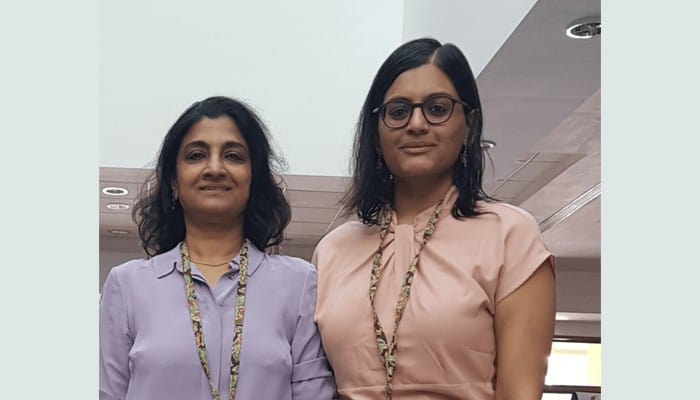
For the first three days, the matched pairs interacted only over Tinder. On the fourth day, they were made to interact over a customized platform RecRoom, a VR game. The same participants were paired up in VR to gauge experiences in both mediums, but were kept anonymous.
This was followed up with a detailed interview asking them to compare various parameters of both the mediums, such as the degree of interactivity, self projection, strength of attraction, how voice, touch, and bodily immersion compare with emojis, gifs and memes as well as miscellaneous other issues like security and novelty.
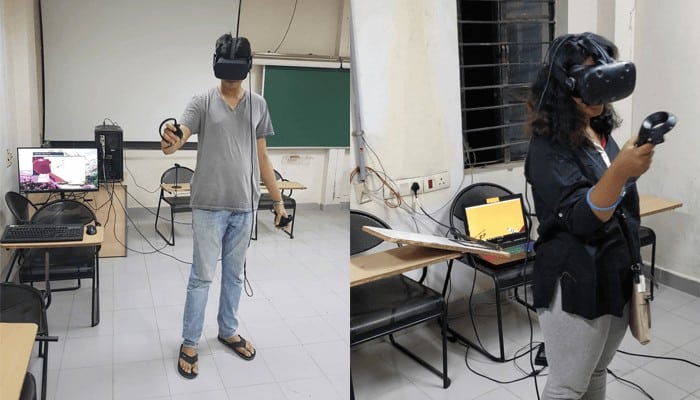
Findings
VR emerged as a powerful preference over Tinder in terms of gauging potential of an emerging relationship or an overall dating experience.
The reason, according to researchers was that VR environment was set out to replicate a ‘real’ romantic setting complete with comfortable couches, ping pong table and a dart board, a dimly-lit bar area, stage for karaoke and so on.
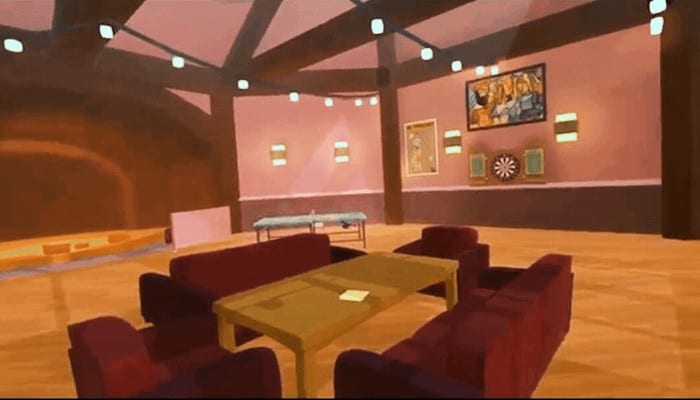
The immersiveness of this experience was further amplified through the creation of avatars where the facial and bodily expressions are a result of participants’ body language and voice. Since touch is a very important dimension reflecting one’s interest in the courtship ritual, the VR setup allowed users to physically move towards and virtually “touch” each other through haptics.
“Essentially this means that the VR controllers ‘vibrate’ upon virtual contact making dating or flirting extremely life-like,” explains Tejaswini.
The study found that 28 out of the 30 respondents felt that VR allowed them to take an informed decision on whether to meet in real. In other words, thanks to VR, the users modified their assessment of their partners. “The same partner who was found unworthy after a chat on Tinder was labelled as potential date material after the VR meet and vice-versa,” says Tejaswini.
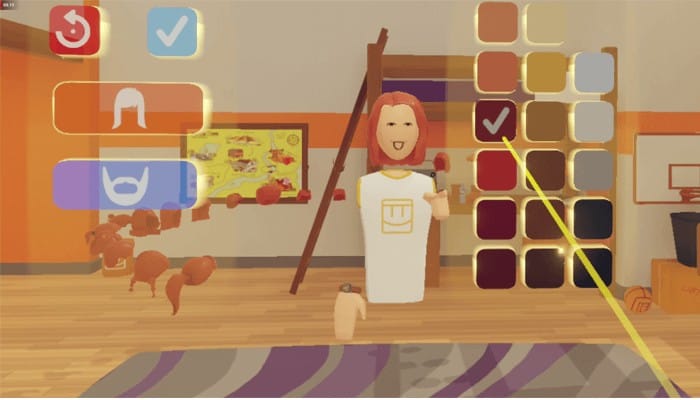
Implications
As far as Prof. Rangaswamy is concerned, reality and virtuality do not exist as two binary perspectives. Although VR is popularly referred to as the technology used to imitate a real-life experience, she prefers to liken it to a dimension to life itself.
“For me this entire experiment is to bring in a new dimension to human relationships where you have another way to approach reality, a certain way of looking at people, and a certain way of dating which will probably change your ideas of romance,” says Prof Rangaswamy.
Will technology engender social interactions?
“From this study, we could make observations that can be generalized and applied to other social settings as well,” says Prof. Rangaswamy.
Features of VR that influenced romantic interactions found favour due to their ability to mimic a real-life dating situation. They include spontaneity in real time, immediate feedback through verbal and non-verbal cues, the ability to control the experience, either by initiating the conversation – as revealed by a majority of the female participants – or the ability to walk away at will in unpleasant circumstances.
Despite current shortcomings of VR such as the non-pervasiveness of the technology itself, requirement of a time commitment, the inability to multitask, and the ethical issues associated with it, Tejaswini emphasizes that even non-romantic or platonic interactions can become wholesome experiences with the help of VR.
She concludes by recommending some future VR dating design applications that marry the immersiveness of VR with certain chat-like features found in Tinder.
Somasekhar Mulugu, former Associate Editor & Chief of Bureau of The Hindu BusinessLine, is a well-known political, business and science writer and analyst based in Hyderabad.

